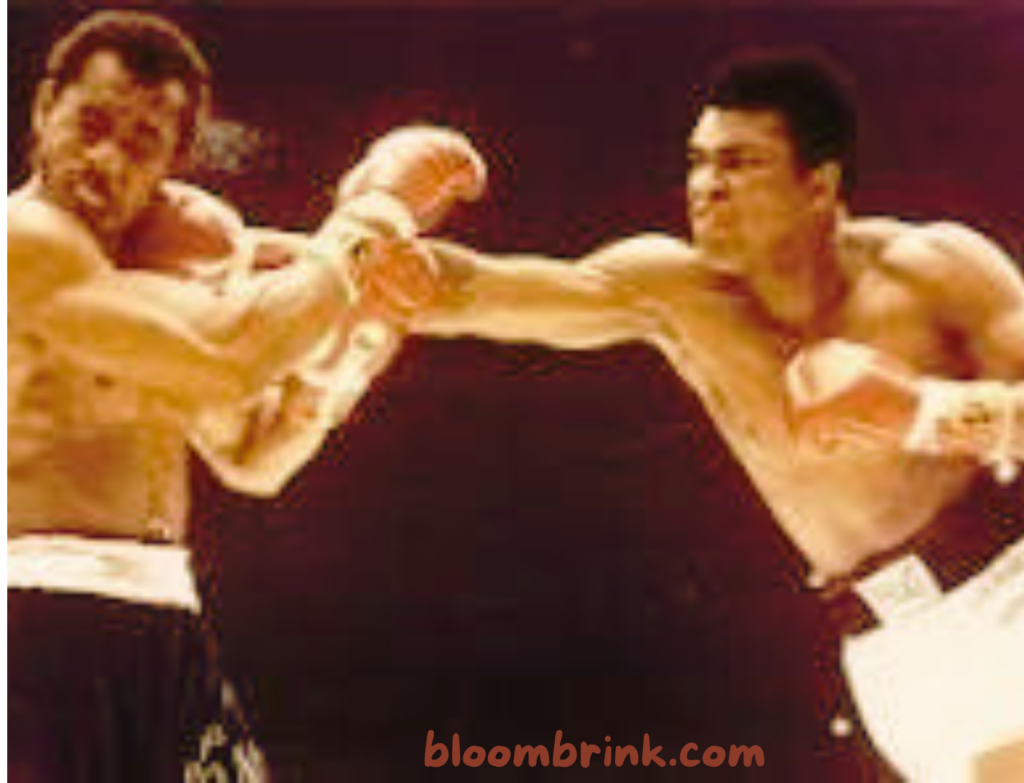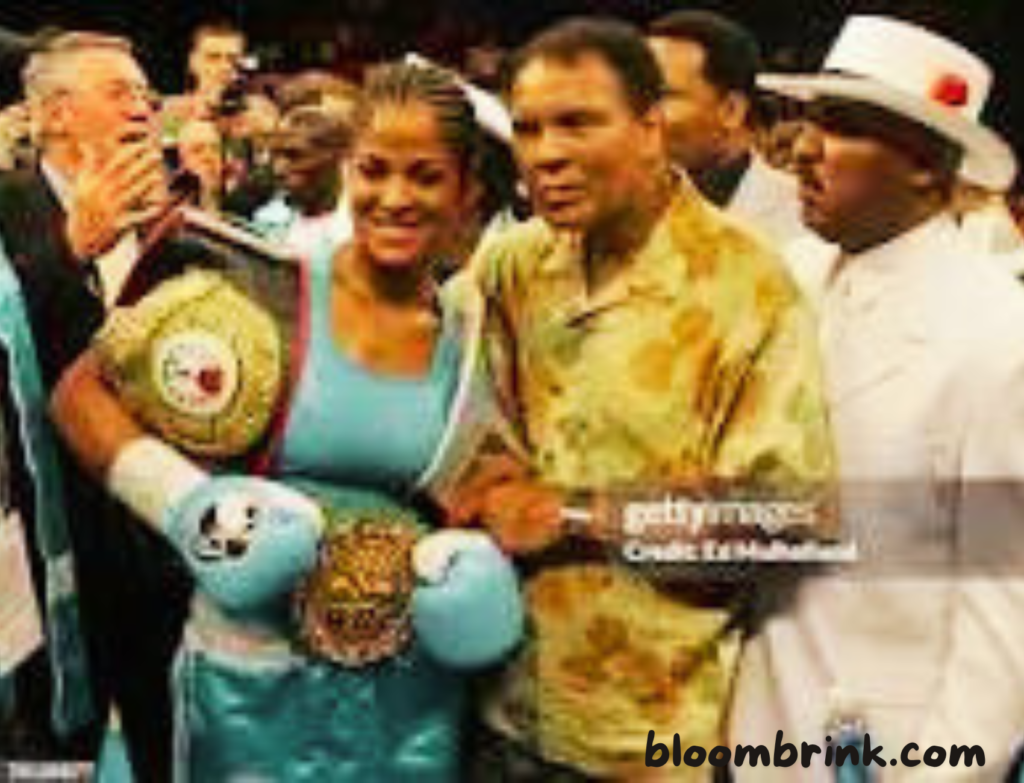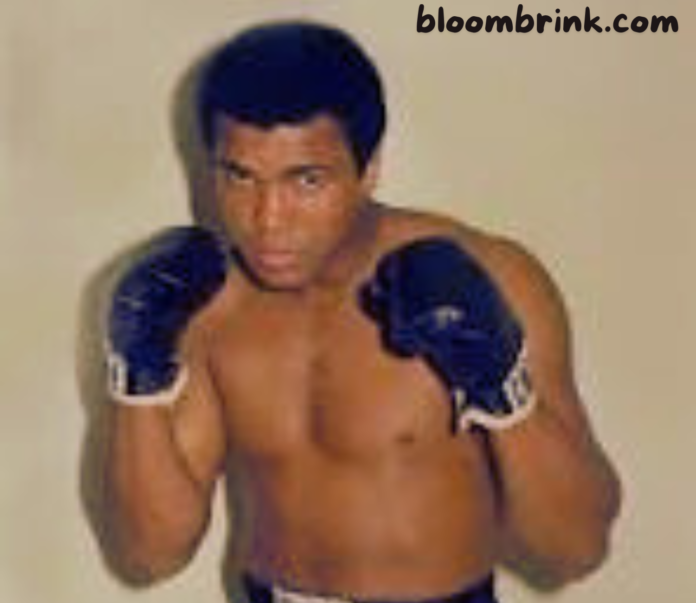THE GREAT BOXER IN THE WORLD
Muhammad Ali, who was born Cassius Marcellus Clay Jr. in Louisville, Kentucky, on January 17, 1942, is widely regarded as one of the most prominent and famous athletes of the 20th century. Muhammad Ali, a worldwide icon, was renowned for his boxing skills, charismatic persona, and political activism; his influence extended far beyond his professional career.

Childhood and Beginnings of Boxing
Joe Martin, a boxing coach and Louisville police officer, introduced Ali to the sport at the age of 12, after the theft of Ali’s bicycle. Ali resolved to assault the criminal. Martin, recognising his aptitude, initiated his instruction. By 18, Ali won two Golden Gloves championships, two Amateur Athletic Union national championships, and 100 of 108 amateur contests. His pinnacle as an amateur was a 1960 Rome Olympics gold medal in the light heavyweight division.

Career in the Professions and Conversion to Islam
After moving into the professional ring shortly after the Olympics, Ali swiftly gained recognition for his unconventional fighting style, characterised by its ability to “float like a butterfly, sting like a bee.” His quickness and accuracy were unparalleled among heavyweight competitors. In 1964, at the age of 22, he surprised the world by claiming the heavyweight championship against the heavily favoured Sonny Liston.
Shortly after this victory, Ali declared his faith transformation to Islam and embraced the name Muhammad Ali. Although this contentious choice was met with public censure, it initiated Ali’s elevation as a prominent social and political figure.

Opposition to the Vietnam War
Ali’s career experienced a significant shift in 1966 when he declined induction into the United States military, citing opposition to the Vietnam War and religious convictions. “I have nothing against them, Viet Cong,” he renownedly declared. Ali was subjected to a five-year prison sentence and the forfeiture of his boxing titles as a result of this position; however, he remained free while appealing the conviction. Ali became a symbol of the anti-war movement and an idol to African-American civil rights activists during this time.
Reentry into Boxing
In 1971, after his conviction was overturned, Ali resumed his boxing career. During this period, he engaged in several of the most renowned bouts in the annals of boxing antiquity. His three-fight rivalry with Joe Frazier, which spanned from 1971 to 1975, reached its zenith with the “Thrilla in Manila,” regarded as one of the greatest boxing matches in history. During the “Rumble in the Jungle” in Zaire in 1974, Ali defeated George Foreman via a stunning knockout to reclaim the heavyweight title; this victory cemented Ali’s status as “The Greatest.”

Subsequent Years and Legacy
Ali retired from boxing in 1981 with a record of 56 victories, five defeats, and 37 knockouts. In 1984, Parkinson’s syndrome was identified in him, most likely as a result of the cranial traumas he endured throughout his career. Despite his ailment, Ali maintained a prominent presence in public discourse, advocating for peace, supporting philanthropic endeavours, and offering analysis on a multitude of social and political concerns.
Muhammad Ali died on June 3, 2016, at the age of 74. In addition to being a boxing champion, his legacy consists of courageous, persistent, and witty individuals who challenged racial and political injustices, stood steadfast in their convictions, and inspired millions across the globe. Ali is commemorated for his exceptional athletic abilities, political activism, and influence as a cultural icon. His life narrative is a testament to the transformative potential of relentless drive and influence beyond athletics.
please read also https://bloombrink.com/imran_khan_from_the_cricket_to_a_political_stalwart/



